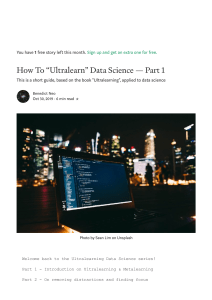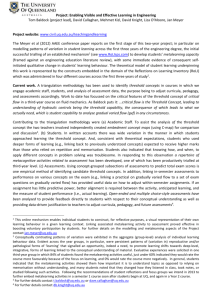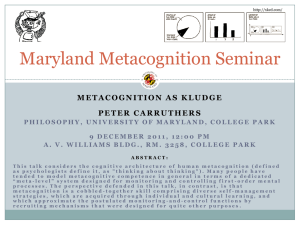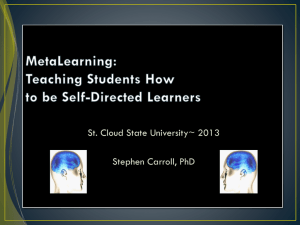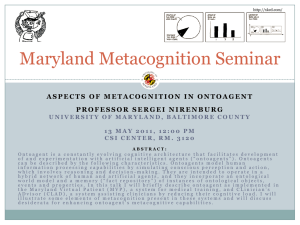METALEARNING: is to make sense of one’s own experience of learning.
advertisement
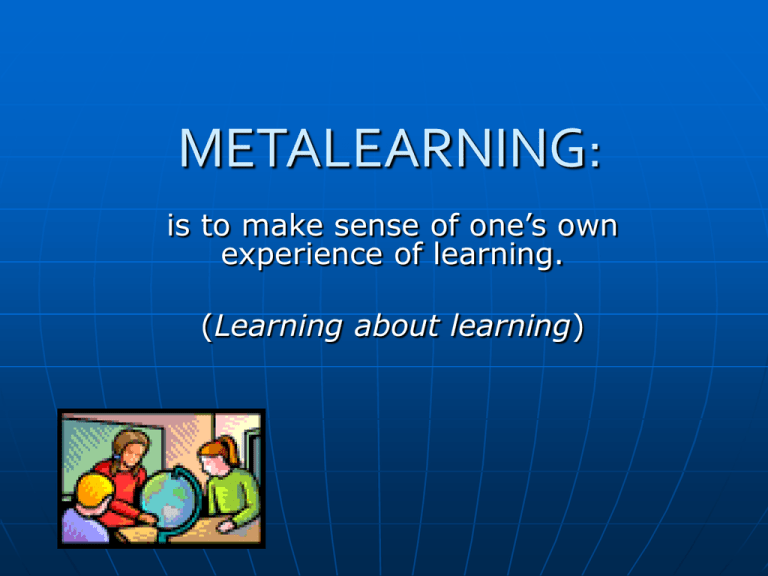
METALEARNING: is to make sense of one’s own experience of learning. (Learning about learning) John Biggs (1985) is credited with creating and defining the concept of metalearning. His conception is framed around the idea of ‘being aware of and taking control of one’s own learning.’ Metacognition and Metalearning There is a strong connection of metalearning to metacognition: self awareness, self-identity as a learner and reflection as a process for achieving this self-awareness as a learner. “Metalearning covers a much wider range of issues than metacognition, including goals, feelings, social relations and context of learning” “Metalearning is not the same as metacognition….Metalearning embraces more than cognition, it embraces the affective, cognitive, connative and also embodiment…mind, body, emotions/feelings.” Metalearning people need to have knowledge of how they learn they have the motivation to be proactive in managing themselves in this way they have the capacity to be able to regulate their learning Learning how to learn improves performance self-empowerment (attitude, self-confidence, understanding, what Senge calls "personal mastery") knowing and choosing the best way to learn (individual, group, debate, etc) and the best sources of information personal knowledge management (capturing and reflecting on one's toolkit) forming powerful relationships (with mentors, colleagues, info sources) continuous reflection (double loop, goal of selfimprovement) moving to a reinforcing learning environment Building focus on learning about learning requires: A process view of learning Recognition of the need for explicit talk about learning Everyday practices in the classroom Supportive school vision & management Resilience to keep at bay pressures. Skill in learning vs Learning skills Learning about learning in the Primary classroom Learned helplessness can be reversed (failure to effort or strategy rather than ability) Encourage to engage in self-reflective learning Encourage questions Improve the way we communicate with our learners Adopt and encourage a can-do attitude Get to know your learners Be flexible Accentuate the positive Provide opportunities Build on prior knowledge and experiences.
